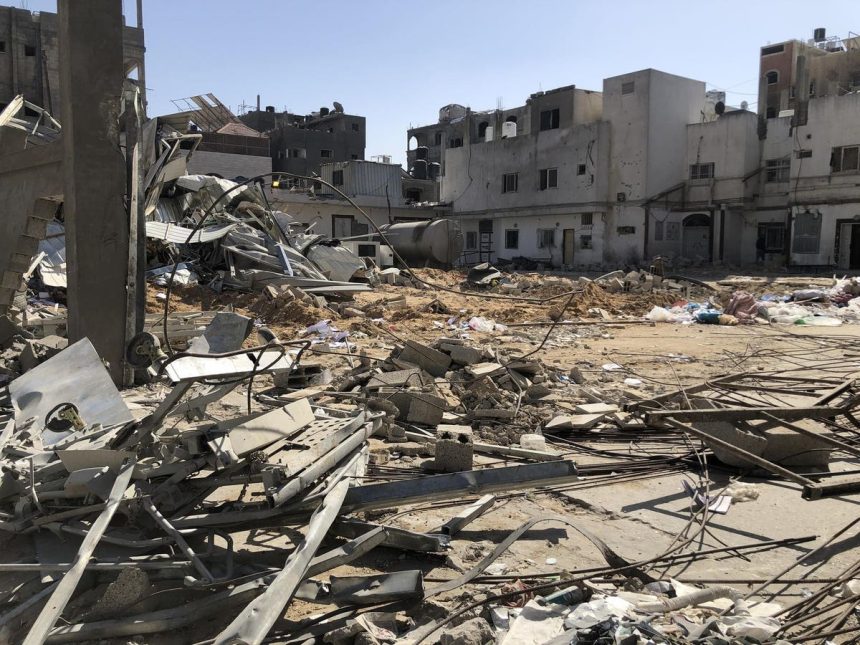The Gaza Strip’s healthcare system teeters on the precipice of complete collapse, a dire situation exacerbated by repeated attacks on hospitals and medical facilities. This crisis, unfolding against the backdrop of ongoing conflict, has left the Palestinian population grappling with a severe lack of access to essential medical care. The alarming state of affairs was brought to the forefront during a UN Security Council meeting on January 3, 2025, where representatives from the World Health Organization (WHO) and the UN High Commissioner for Human Rights (OHCHR) painted a grim picture of the deteriorating situation. Dr. Rik Peeperkorn, WHO representative, highlighted the devastating impact of hospitals becoming battlegrounds, rendering them unusable and depriving countless individuals of critical care. The systematic dismantling of the health sector, coupled with severe shortages of medical supplies, equipment, and specialized staff, has pushed the system to its breaking point. With only a fraction of hospitals partially functional and bed capacity drastically reduced, the healthcare system struggles to meet the overwhelming needs of the population.
The UN High Commissioner for Human Rights, Volker Türk, characterized the destruction of hospitals as a human rights catastrophe unfolding before the world’s eyes. The OHCHR has documented numerous strikes on hospitals and other medical facilities in Gaza, resulting in significant casualties among medical professionals and civilians, and causing widespread damage to infrastructure. The recent attacks on Kamal Adwan Hospital, the last functioning hospital in North Gaza, exemplify the pattern of attacks documented by the OHCHR. These assaults not only deprive the population of crucial medical services but also contribute to the alarmingly high number of medical personnel killed in the conflict.
A chilling OHCHR report, released on December 31, 2024, revealed the devastating consequences of the crippled healthcare system. The report documented the period between October 7, 2023, and June 30, 2024, detailing how the increasingly limited access to healthcare prevented countless individuals with trauma injuries from receiving timely, potentially life-saving treatment. Many injured reportedly died while awaiting hospitalization or treatment. Even those fortunate enough to receive critical care often faced inadequate facilities and were prematurely discharged due to a lack of space. The report highlighted the devastating ripple effects of these attacks, impacting individuals with non-fatal conditions and potentially turning them fatal.
The OHCHR report further emphasized the disproportionate impact on vulnerable populations, particularly women and children. Pregnant women face grave risks due to limited access to pre and postnatal care, increasing the risk of preventable maternal and child mortality. Newborn deaths have been reported due to mothers’ inability to access postnatal check-ups or reach medical facilities for childbirth. Patients with chronic diseases requiring ongoing treatment, such as kidney failure, hypertension, diabetes, heart disease, and cancer, have also been severely affected by the disruption of healthcare services, further compounding the health crisis. The report underscored the urgent need for international attention and intervention to address the escalating humanitarian crisis.
During the UN Security Council meeting, the High Commissioner stressed the paramount importance of protecting hospitals during warfare, emphasizing that this principle must be respected by all parties at all times. He called for independent, thorough, and transparent investigations into all attacks on hospitals, healthcare infrastructure, and medical personnel to ensure accountability and prevent future atrocities. This call for accountability underscores the gravity of the situation and the need for concrete action to protect healthcare workers and facilities. The High Commissioner’s plea resonated with the international community’s growing concern over the escalating humanitarian crisis in Gaza.
In response to the reports, Israel’s Deputy Permanent Representative to the United Nations, Brett Jonathan Miller, defended the recent operations conducted by the Israel Defense Forces. He highlighted the apprehension of numerous individuals suspected of terrorist activities, including a hospital director accused of being a Hamas operative. Miller asserted that the hospital in question was harboring Hamas and Islamic Jihad members, justifying the military action. This conflicting narrative highlights the complex and deeply polarized nature of the conflict, further complicating efforts to address the humanitarian crisis and ensure accountability for attacks on healthcare facilities. The situation demands urgent international action to protect civilians and ensure that access to healthcare is not compromised. A thorough and impartial investigation into all allegations of attacks on healthcare facilities is crucial for establishing the facts and ensuring accountability. Simultaneously, efforts must be intensified to restore and strengthen Gaza’s healthcare system to provide much-needed medical care to the vulnerable population.



